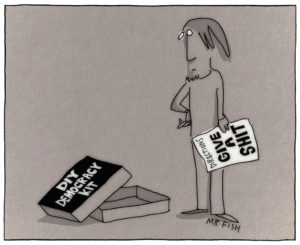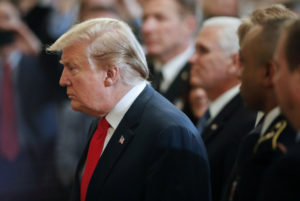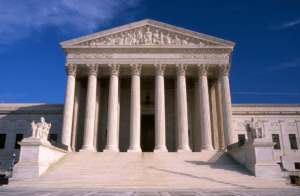Marie Cocco: Your Papers, Please
The current push to require voters to supply proof of citizenship at the voting booth has very little to do with preventing illegal voting and much more to do with keeping away from the polls those most likely to vote for Democrats.Editor’s note: In this column, Cocco argues that the current push to require voters to supply proof of citizenship at the voting booth has very little to do with preventing illegal voting and much more to do with keeping away from the polls those most likely to vote for Democrats.
WASHINGTON — I hereby declare on oath that I will carry my valid U.S. passport, my birth certificate or my naturalization papers so that proof of citizenship can be offered on demand to partisan election workers, who will determine on Election Day if I may cast a vote.
Congress has not — yet — passed this requirement. But the day draws closer as the debate over illegal immigration is odiously transformed into an assault on the right of U.S. citizens to vote.
The ugliness was most public when the House leadership was forced to put off a vote to reauthorize the Voting Rights Act, the landmark legislation that was supposed to consign the most noxious forms of voting discrimination to the dustbin of history. Initially, objections came from Southern Republicans who claimed their states should no longer be singled out for scrutiny because of past discrimination.
Soon enough, another agenda became clear. Far more lawmakers were incensed at the law’s requirement that language assistance be given at the polls to voters who aren’t sufficiently proficient in English. A spending amendment that would prohibit federal funds from being used on language assistance failed — but only after a majority of House Republicans went on record as supporting it.
They affixed to their brows the usual xenophobic blinders, unwilling to see the facts: About two-thirds of those requiring language assistance at the polls aren’t newcomers but native-born U.S. citizens. They include large numbers of Alaskans and Native Americans, as well as Puerto Ricans. Besides Hispanic-Americans, millions of Asian-American voters use the assistance, which includes foreign-language ballots.
The Voting Rights Act may survive. But what of the rights of citizens who are unable to produce the paper trail that Republicans now seek from people who register to vote — or who try to vote, once registered?
Rep. Henry Hyde (R-Ill.) is sponsoring a measure that would require people who register to vote at motor vehicle offices and other public facilities to produce documents proving their citizenship, instead of merely affirming citizenship, as many states require now. A voter who changes his or her registration — say, by moving from one state to another, or even from one county to another — also would have to produce this proof. In states where registration takes place on Election Day, the voter would have to bring the documents to the polls.
Hyde would require a passport — held by only 25% of American citizens, according to the State Department. Or a birth certificate — likely to be interred in a file drawer several states away from where the voter now lives if, in fact, the certificate is available at all. Blacks in the Jim Crow South often were denied admission to hospitals; births at home often went unrecorded. Minorities and elderly people (read, mostly Democrats) are least likely to be able to produce a birth certificate. Naturalized citizens — even those who became citizens decades ago — would have to produce their naturalization papers. Obtaining a replacement copy from the Homeland Security Department now costs $220.
“You’re 86 years old, you’re homebound, you might be lucky if somebody comes to visit you once in a while,” Rep. Charlie Gonzalez (D-Texas), who chairs the civil rights task force of the Congressional Hispanic Caucus, said in an interview. “Where do you turn? How do you get this done?”
Hyde says “voting fraud is legendary in many cities.” Legend seems quite the proper word. No army of illegal immigrants, or other noncitizens, is storming the voting booth.
Between October 2002 and September 2005, according to data Hyde supplied to support his legislation, the Justice Department won 55 convictions for election fraud — while hundreds of millions of ballots were cast. Typically the convictions were for “vote buying” by zealous partisans at all levels of political combat. A handful of cases involved convictions of noncitizens who voted; one had been a candidate for the Florida Legislature. Another prosecution involved a Canadian who voted illegally in 2000 and 2002 during elections in Avery County, N.C.
Some believe the solution to this scourge is to force Americans to undertake a paper chase at their own expense — a passport costs $97, a copy of a birth certificate $10 to $20. Together with a proposal to require all voters to show a photo ID — a mandate that’s consistently been found to discriminate against minorities, the poor and the elderly — the intent is clear.
The scheme has little to do with blocking illegal immigrants from voting illegitimately. It is meant to keep from the polling place those legitimate citizens whose votes might go against Republicans.
Marie Cocco’s e-mail address is mariecocco(at symbol)washpost.com.
Your support matters…Independent journalism is under threat and overshadowed by heavily funded mainstream media.
You can help level the playing field. Become a member.
Your tax-deductible contribution keeps us digging beneath the headlines to give you thought-provoking, investigative reporting and analysis that unearths what's really happening- without compromise.
Give today to support our courageous, independent journalists.




You need to be a supporter to comment.
There are currently no responses to this article.
Be the first to respond.